Earth
Sign up for our newsletter
We summarize the week's scientific breakthroughs every Thursday.
-
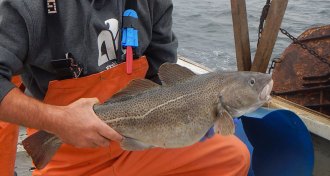 Oceans
OceansRising temperatures complicate efforts to manage cod fishery
Higher water temperatures in the Gulf of Maine could play a role in Atlantic cod crashes.
-
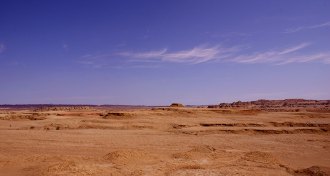 Earth
EarthParched parts of Earth expanding
More drylands, largely impacting developing nations, are forecasted for near future.
-
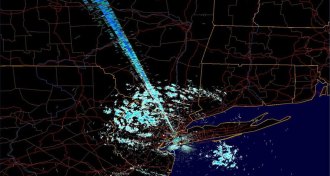 Climate
ClimateWi-Fi threatens weather forecasts
Interference from wireless technology threatens the usefulness of weather radar, meteorologists warn.
-
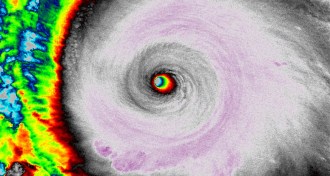 Climate
ClimateHurricane Patricia’s howling winds smash records
Hurricane Patricia’s winds are now the fastest ever recorded in a tropical cyclone, making it the strongest hurricane on record in the Western Hemisphere.
-
 Paleontology
Paleontology300 million-year-old giant shark swam the Texas seas
Fossil find shows oldest known ‘supershark,’ about the size of a limo, prowled the ocean 300 million years ago.
By Meghan Rosen -
 Climate
ClimateClimate change could shift New England’s fall foliage
Climate change could make for earlier or later fall color, depending on where you live in New England.
-
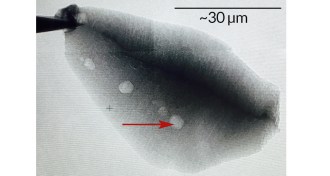 Earth
Earth4.1-billion-year-old crystal may hold earliest signs of life
A carbon impurity embedded inside an ancient zircon crystal suggests that life on Earth appeared before 4.1 billion years ago.
-
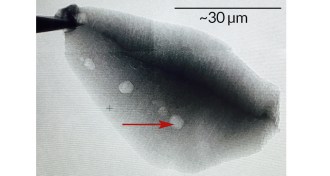 Earth
Earth4.1-billion-year-old crystal may hold earliest signs of life
New evidence suggests that life on Earth arose before 4.1 billion years ago, 300 million years earlier than previous estimates.
-
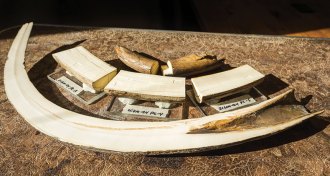 Paleontology
PaleontologyNew evidence weakens case against climate in woolly mammoths’ death
Hunters responsible for woolly mammoths’ extinction, suggests a chemical analysis of juveniles’ tusks.
By Meghan Rosen -
 Climate
ClimateHigh-flying birds recruited for meteorology
Monitoring the midflight movements of high-flying birds can provide valuable meteorological data, new research shows.
-
 Environment
EnvironmentAir pollutants enter body through skin
Although scientists have largely viewed skin as an unimportant portal to blood for toxic air pollutants, new human data show that skin can surpass lungs as a route of entry.
By Janet Raloff -
 Earth
EarthSurface spills near fracking sites implicated in water contamination
Chemical spills from fracking operations are the likely source of chemicals found in drinking water wells in northeastern Pennsylvania.